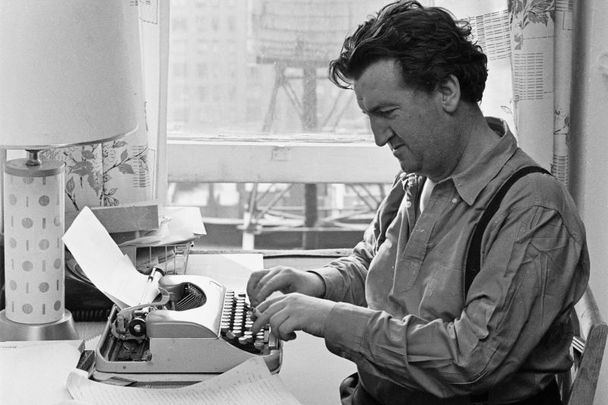An additional year of historic Irish births, marriages, and deaths, including births in 1923 and deaths in 1973, are now available to view on IrishGenealogy.ie.
The records now available online include:
- Birth register records – 1864 to 1923
- Marriage register records – 1845 to 1948
- Death register records – 1864 to 1973
Minister for Tourism, Culture, Arts, Gaeltacht, Sport and Media, Catherine Martin TD, welcomed this latest release: “This release of an additional year of register data by the Civil Registration Service is part of the ongoing partnership between my Department and the Department of Social Protection.
“The aim of this continuing project is to make all these historic records freely and easily accessible to all members of the public and broader diaspora via the www.irishgeneaology.ie website.
“I’m sure both new and returning visitors to the site, will welcome the addition of these records for continued research.
“I know that this annual update is eagerly anticipated and will be of great benefit to anyone carrying out research on their Irish ancestry.”
Minister for Social Protection, Heather Humphreys, added: “I very much welcome the ongoing partnership between our two Departments, which has allowed us to make this latest tranche of information easily available.
“The civil records of birth, deaths and marriages published on www.irishgenealogy.ie are critical to helping us understand the identity, lifestyles and experiences of our ancestors.
“Civil registration records give us a really solid sense of our identity and connection and this is why this project is so important to the Irish diaspora at home and abroad.”
The records being launched are the birth register entries for 1923, Marriage Register entries for 1948, and Death Register entries for 1973.
These entries show important information that are often vital in helping people to find out about their ancestry.
For births, these include:
- Child’s forename/s
- Child’s surname
- Date of birth
- Place of birth
- Father's name and address
- Mother's name and maiden name if married
- Father's occupation
- Signature of informant (Person who registered the birth)
- Date of registration of the birth
For marriages, these include:
- Marriage location
- Date of marriage
- Forename/s and surnames of bride and groom
- Age at the time of marriage
- Condition (i.e. bachelor, spinster or widowed)
- Occupation of bride and groom
- Bride’s and groom’s fathers’ names and addresses
- Occupations of bride’s and groom’s fathers
- Signature of bride and groom
- Signature of witnesses
For deaths, these include:
- Date and place of death
- Name and surname of deceased
- Male or female
- Condition of deceased (i.e. bachelor, spinster or widowed)
- Age at last birthday
- Rank, profession or occupation of deceased
- Cause of death and duration of illness
- Signature, qualification and residence of informant
- Date of registration

Love Irish history? Share your favorite stories with other history buffs in the IrishCentral History Facebook group.
Notable additions
Births 1923
Patrick John Hillery, (02 May 1923 – 12 April 2008)
He was born on 2 May 1923, in Miltown Malbay, County Clare and qualified as a medical doctor. He married Mary Beatrice Finnegan in 1955.
In 1951, Dr. Hillery was elected to Dáil Éireann for the constituency of Clare and he received his first Government appointment as Minister for Education in 1959.
He subsequently served in a number of ministerial posts (Industry and Commerce, Labour and Foreign Affairs) prior to his appointment in 1973 as Vice President of the then Commission of the European Communities, with special responsibility for Social Affairs. He served as Commissioner until 1976, when he was inaugurated as the sixth President of Ireland on 3 December 1976.
He died on 12th April 2008.
Brendan Behan, (09 Feb 1923 – 20 Mar 1964)
Born on February 9th, 1923, Brendan Behan was an Irish poet, short story writer, novelist, playwright, and Irish Republican activist who wrote in both English and Irish. He achieved notoriety and global celebrity owing to his talent and wit as a writer and journalist,
Behan's uncle Peadar Kearney wrote "The Soldier's Song", which became the Irish national anthem "Amhrán na bhFiann" when translated into Irish.
Deaths 1973
Thomas McEllistrim (14 October 1894 – 4 December 1973)
Thomas McEllistrim was an Irish Fianna Fáil politician who served as a TD from 1923 to 1969. He was a military activist in the period from 1916 to 1923.
He rejected the Anglo-Irish Treaty and fought in the Anti-Treaty IRA during the Irish Civil War of 1922 to 1923. He was one of the senior IRA figures in Kerry during this conflict, under the command of Humphrey Murphy. In the war's early months, he commanded a Kerry column in the fighting in Limerick and at the Battle of Kilmallock, before retreating back into Kerry and pursuing guerrilla warfare. In January 1923, he, along with John Joe Sheehy, led an attack on the National Army barracks at Castlemaine, Co. Kerry.
McEllistrim was elected to the Dáil as a TD for Kerry in August 1923, only months after the end of the Civil War, as a republican candidate.




Comments